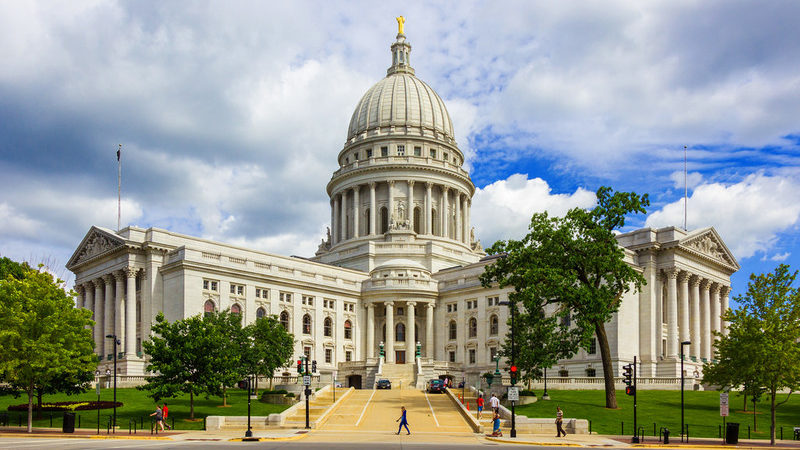
MacIver News Service | May 17, 2019
Another week is in the books in Wisconsin. In the past week, the Joint Finance Committee continued its debate over the 2019-2021 biennial budget, focusing on Transportation, Workforce Development, and Health Services. You can keep up on all the changes made by following MacIver on social media. This week, states are wading into healthcare, tariffs continuing to harm farmers, and a nationwide decline in retail sales. While you wait for Tiger Woods to win the PGA Championship, here are important articles for the fiscal conservative, in case you missed it.
Washington to Offer First ‘Public Option’ Insurance in U.S
Washington state passed a bill this week that would make it the first state to offer a universal public option to health care. This would create a hybrid system that is not market based, but also not a complete government take over of healthcare. The state will dictate what the plan entails, but will hire private companies to administer the plans. In order to fund the program, there will be a cost cap that is said to save consumers money, but it needs to be set in a range that allows for savings to be passed on, while also still being a plan providers will accept.
Chinese Tariffs Threaten Farmers
Monday, China announced it would be raising tariffs on U.S. imports effective June 1. Among items that are impacted by the higher tariffs are U.S. exports of beef, fruit, vegetables, coats, and furniture. The new tariffs combined with the existing tariffs put on by both the U.S. and China, are projected to slow growth by 0.3 percentage points next year. Farmers have already faced higher costs due to tariffs placed on imported steel, and the new retaliatory tariffs will harm them even more.
U.S. retail sales fell for the first time in three months, indicating Americans are spending less as economic uncertainty rises. Retail sales dropped 0.2 percent last month. Among industries with the largest decline, the automobile industry declined 1.1 percent, electronics fell 1.3 percent, and home and garden centers declines 1.9 percent. Gas sales did increase 1.8 percent, but that was due to an increase in prices, which is not good for the economy. Despite a decrease in sales, low unemployment and rising wages are expected to keep the economy growing.
Investors Betting on Interest Rate Cut Soon
While the Federal Reserve has continued to hold rates steady after increasing for the last three years, market watchers are starting to believe a rate cut could soon happen. The main drive of these expectations is the budding trade war between the United States and China. President Trump has argued lowering interest rates would help win the trade war. Kansas City Fed President, Esther George, does not believe a change in rates is warranted, saying “The current level of inflation may perplex central bankers and financial market participants, but in the context of a growing economy and job gains, it doesn’t demand a Fed policy response in my view”
State Revenue Grows $750 Million
New reports show Wisconsin will have $753 million more in revenue over the next three years according to the nonpartisan Legislative Fiscal Bureau. Individual income tax collections are expected to increase $460 million between 2018-2019 and 2020-2021. Corporate and Franchise tax collection is expected to go up $610 million over the same period. In addition to an increase in revenue, the LFB projects income will increase four percent for each of the next three years. This increase in revenue comes after an eight year stretch where taxes were consistently cut during the Walker Administration.